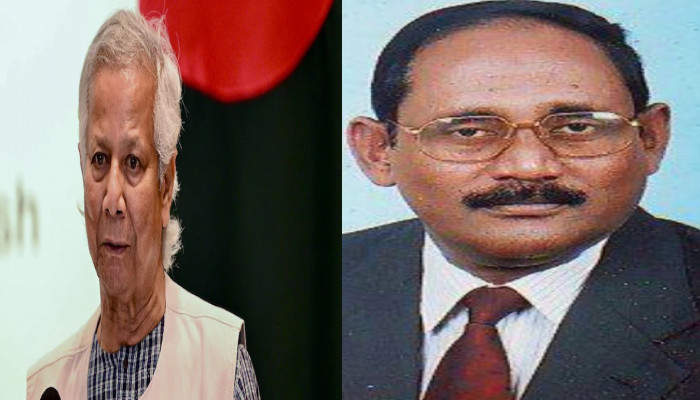Bangladesh releases ex-Minister who funded POK terrorists to bleed India
- In Reports
- 04:57 PM, Dec 24, 2024
- Myind Staff
A court in Bangladesh has granted relief to another individual accused of anti-India terrorism. On Tuesday, Abdus Salam Pintu, a former junior minister and member of the Bangladesh Nationalist Party (BNP), was released from jail after 17 years.
Pintu had funded terrorists from Pakistan-Occupied Kashmir (POK) and Bangladesh and supported the Pakistan-based terrorist group Harkat-ul-Jihad-al-Islami (HuJI) in carrying out attacks against India. He was previously sentenced to death for planning the grenade attack on Prime Minister Sheikh Hasina in 2004. Abdus Salam was instrumental in the terror strikes in India by supporting the HuJI's recruitment, training, and weapon acquisition efforts in POK camps. He is charged with assisting HuJI in providing firearms and explosives training to madrassa pupils and organising money and weapons for terrorists in Kashmir.
India, Bangladesh, Israel, New Zealand, the United Kingdom and the United States have all labelled the Pakistan-based HuJI as a terrorist organisation. According to the Dhaka-based Daily Star, Abdus Salam Pintu has been acquitted by the High Court after being imprisoned since 2008. Pintu and another former BNP minister, Lutfozzaman Babar, were involved in a failed attempt to assassinate Hasina in 2004. Babar was also acquitted last week, along with five others, in connection with the 2004 Chattogram arms-haul case. The investigative officer in the 2004 grenade attack case told a Dhaka court in 2021 that Abdus Salam Pintu, an assistant to the banned group HuJI, assisted the group in obtaining weapons to use against India, according to a PTI report.
In 2011, the investigative officer also told the court that Babur and Abdus had instructed many youths, mostly students at madrassas, how to handle bombs and guns. “Most of their recruits came from Pakistan-Occupied Kashmir (POK) and Bangladesh... They had also mobilised funds, arms and ammunition for insurgents in Kashmir of India,” the investigation officer was quoted as saying by the Daily Star, in 2021. He had claimed that the Awami League government from 1996 to 2001 was viewed as a "hindrance" to HuJI's efforts to "recruit and train youths as operatives, and acquire firearms for militants operating in India and Afghanistan," which is why the group sought to overthrow Hasina.
In 2001, when the Awami League, led by Hasina, lost power, HuJI (Harkat-ul-Jihad-al-Islami) received support from BNP (Bangladesh Nationalist Party) leaders Lutfozzaman Babar and Abdus Salam Pintu, according to a Dhaka court in 2021. It was through Abdus’s brother, Moulana Tajuddin, who was a leader of HuJI, that both Babar and Pintu helped the terror group with its plans to attack India. Both the ministers also assisted Abdus Salam Pintu's brother, Tajuddin, in escaping to Pakistan. Abdus Salam Pintu held the position of deputy minister for information, industries and education under the former Prime Minister Khaleda Zia of the BNP.
Several terrorist acts in India have been carried out with the help of the HuJI as part of the "Bleed India with a Thousand Cuts" policy of the Pakistani establishment. This included a number of low-intensity attacks, including the Varanasi court complex explosions in 2006, the Ajmer Sharif Dargah bombing in 2007 and Delhi bombing in 2011. In addition to receiving funding and patronage from Pakistan's Inter-Services Intelligence (ISI), HuJI is known to collaborate with other terrorist organisations such as Lashkar-e-Taiba (LeT) and Jaish-e-Mohammed (JeM).
In additional to the release of Abdus Salam Pintu and Lutfozzaman Babar, the Naya Bangladesh government, led by Muhammad Yunus, has set free several Islamists with strong anti-India views. Shortly after Sheikh Hasina was forced to escape to India, Jashimuddin Rahmani, the leader of the Ansarullah Bangla Team (ABT), an al-Qaeda-linked terrorist group, was also released.







Comments